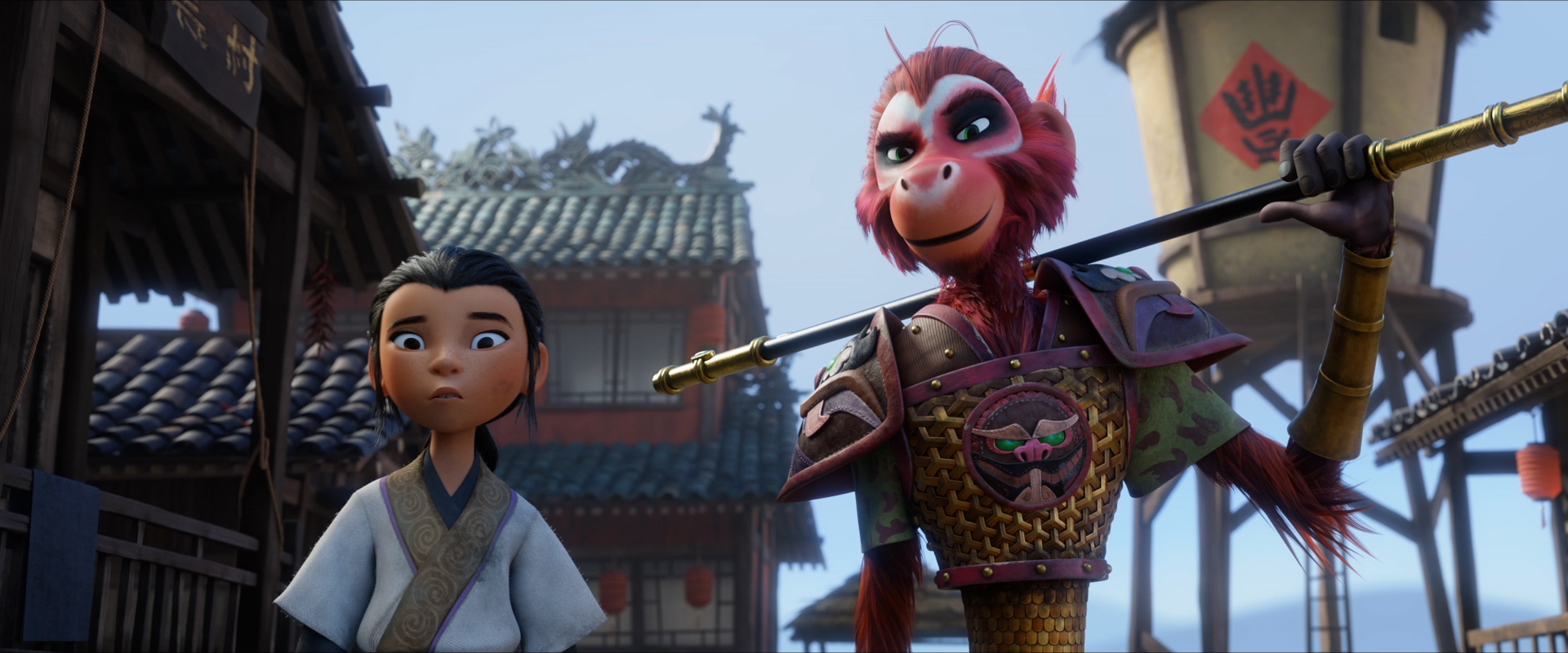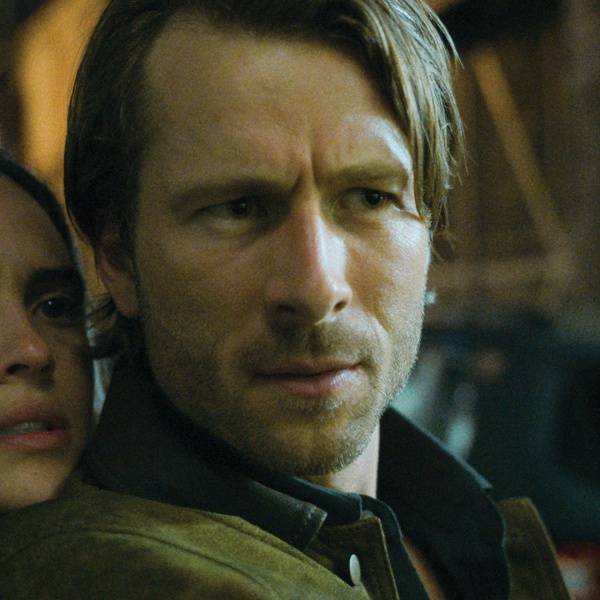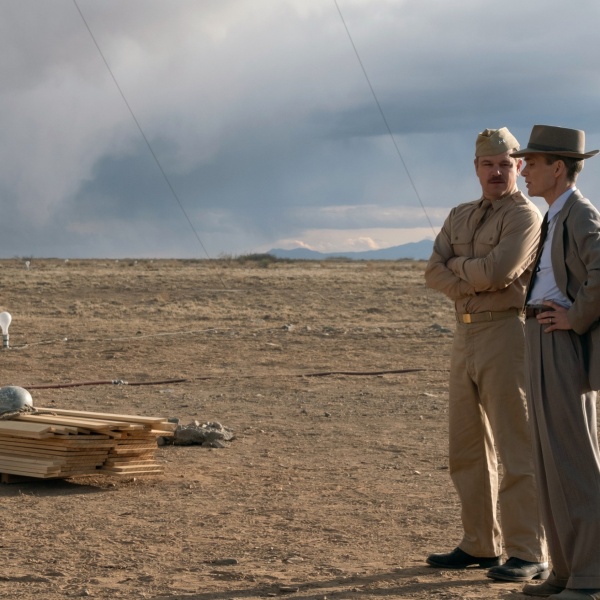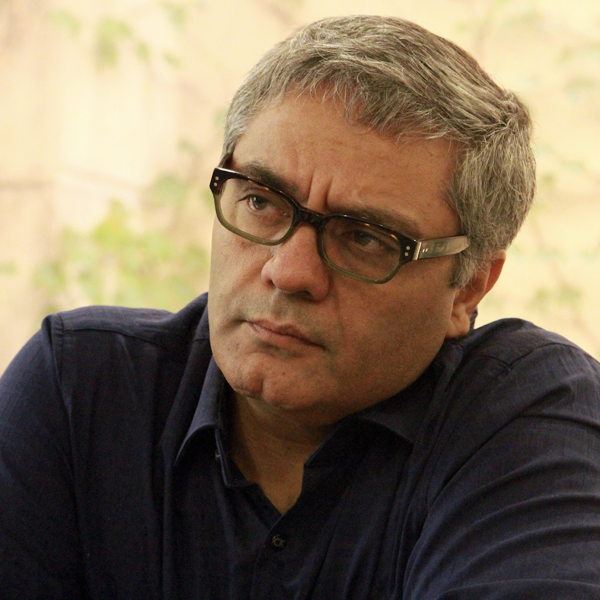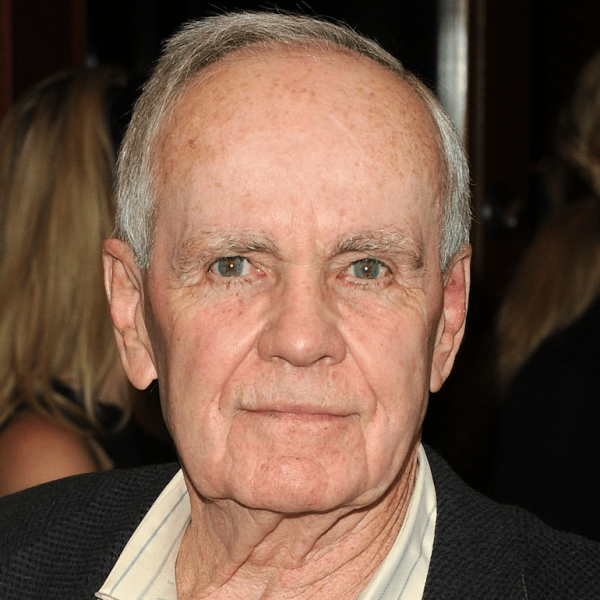For director Anthony Stacchi (“The Box Trolls”), re-energizing the 16th-century Chinese novel “Journey to the West” for Netflix‘s animated feature “The Monkey King” meant turning the titular character into something very modern: an antihero. This was supported by executive producer Stephen Chow (“Kung Fu Hustle”), who previously directed a live-action version of “Journey to the West.”
“Stephen Chow has made a career of making heroes out of really unlikeable jerks,” Stacchi told IndieWire. “And you stick with ’em on their journey ’cause you know why they are the way they are, and you’re hoping for them to redeem themselves. So we did that here. He is a selfish, arrogant jerk from the beginning, and that way through the end. But you understand why he’s fighting for acceptance, you know where his anti-authoritarian attitude comes from.”
They also emphasized a goofy tone throughout the journey, in which Monkey King (voiced by Jimmy O. Yang) is accompanied by a young village girl, Lin (Jolie Hoang-Rappaport), who challenges his selfishness as the narcissistic monkey attempts to slay 100 demons with a magical fighting stick to earn his place among the gods. “It’s reminiscent of the Warner Bros. cartoons,” Stacchi said. “A lot of that is there in the original folk tale too. You could see it in the early storyboards we pitched. Steven was on board and so was Netflix.”
“The Monkey King,” which was produced by Peilin Chou (“Over the Moon”) and animated at Reel FX in Montreal (“The Book of Life”), boasts a style inspired by the textures of Chinese brush paintings and ink on paper. This was conceived by production designer Kyle McQueen (“The Willoughbys,” “Sausage Party”).

“It’s got that moving sort of water wash look,” added Stacchi. “We really like that style. Super atmospheric. Clouds and fog and misty stuff. So we wanted to integrate that but not be overly stylized where it’s distracting. The story’s already weird enough. It’s ancient China where the talking monkey in armor goes to three or four different worlds.”
For Earth, the jungle, graveyards, and villages are de-saturated and dry like a Sergio Leone Western. Jade Heaven is made out of clouds and looks like Apple or Google HQ with a marble quality. Hell resembles a bureaucratic DMV. It’s minimalist and appears to be made out of Chinese brush painting ink. And the palace of the flamboyant underwater Dragon King looks like a Vegas casino with stained-glass windows and Busby Berkeley-style musical extravaganzas.
While there have been numerous live-action and animated adaptations of “Journey to the West,” the one innovation that Stacchi is proudest of is transforming the magical fighting stick into a character. Stick, the most powerful ancient weapon in the universe, becomes Monkey King’s shape-shifting warring partner. But it also serves as an external conscience that stands up to Monkey King’s narcissism. It communicates through a uniquely rich series of audible sounds provided by the distinctive throat-singing of Nan Li.
“Early on, we wanted Monkey King to have his own little theme song,” said Stacchi. “And so when we approached Voodoo Kung Fu to do a heavy metal song, that’s how we met Nan Li, who does throat singing. We had been struggling for months with the different sound designers. They tried an iron pipe where he’s hollowed, they tried marbles running into it, they tried clanging noises. They tried to make up a stick language. But he always sounded like a robot or a droid.

“We played Nan Li some of the stuff and he suggested throat singing, and we all started to laugh because the first sound he did was like a frustrated old man. That’s what it was having to deal with this monkey all the time. In some ways, he’s as bad as Monkey King. He loves to fight. He loves to get into it. I said, ‘Can you do that full range of stuff with your voice?’ And Nan Li said, ‘I think so.’
“So we got together and did a recording session. Nan Li has this half-hour process that he goes through, which warms up his throat and warms up his voice. But he can’t talk or speak. He can only make sounds. So we recorded that, which is this amazing range of sounds, laughing sounds, frustrated sounds, angry sounds, surprise sounds, and we’d have hours of it.”
